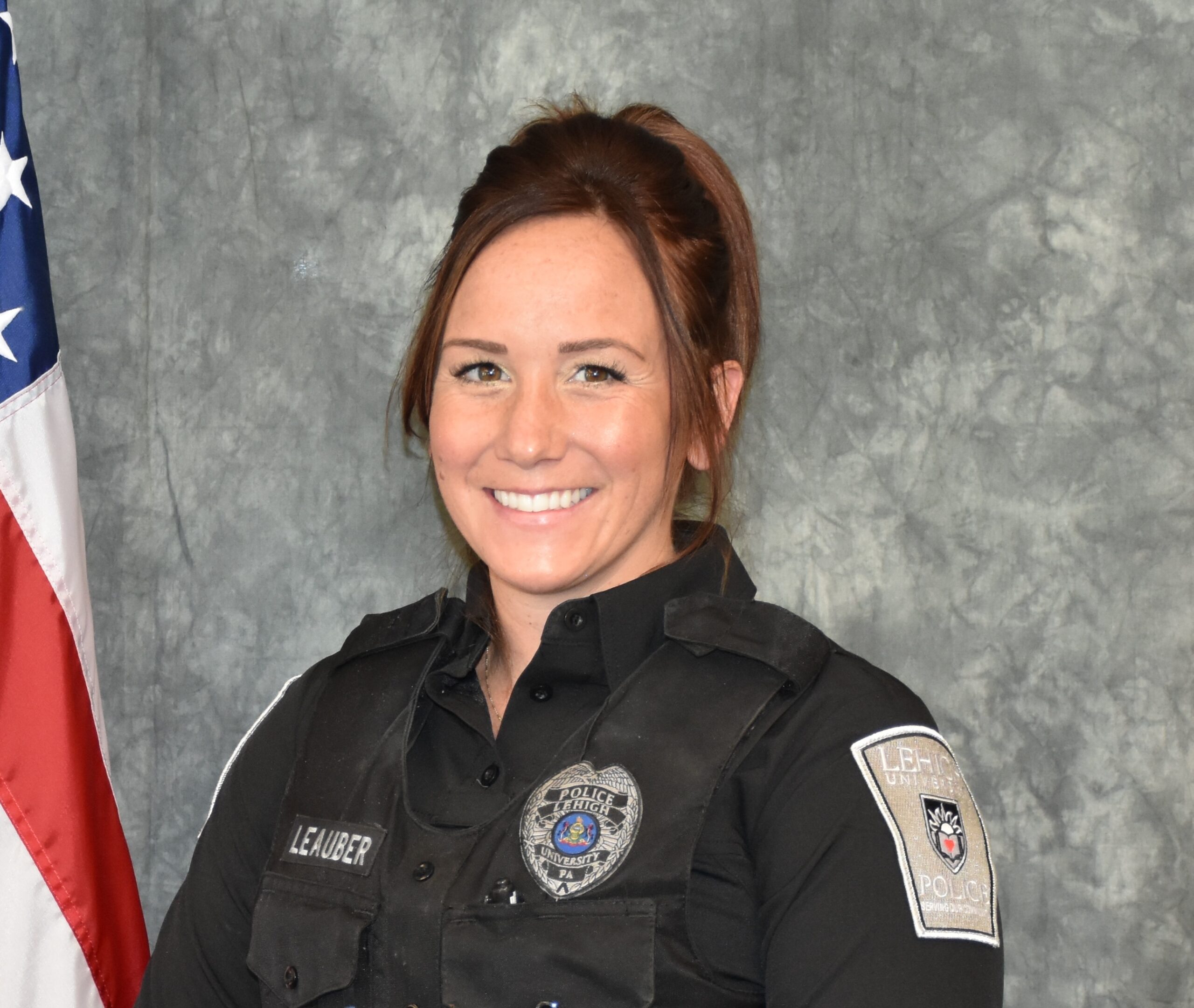Officer Jaime Hricko (Leauber)
Lehigh University Police Department
Bethlehem, PA

1. Why did you become a police officer?
I pursued a career in law enforcement due to my initial occupation within my family’s business, which didn’t ignite any passion within me. I found myself stuck in a situation where I lacked a college degree and didn’t know how to transition into a more fulfilling job. During this time, I crossed paths with a retired police officer who saw potential in me as a future cop. This encounter prompted me to contemplate the qualities required to become a police officer – qualities like compassion, passion, fairness, and sound judgment – and I wholeheartedly agreed with his assessment. Consequently, I took the necessary steps, including rigorous physical training, to prepare for the police academy and successfully gained acceptance into the upcoming class that year.
2. What motivates you to succeed?
My driving force for success stems from the power to brighten someone’s day and create a positive influence through my actions and reactions in various situations. I firmly believe that each person possesses the potential to bring sunshine into someone’s life and contribute positively to the world, and I aspire to be that individual. This inner motivation ignites a fire within me, propelling me to strive diligently every single day in my quest to make the world a better place.
3. What’s your most memorable moment on the job?
One of the most unforgettable experiences during my career occurred when a mother of an AVENUES participant referred to me as her daughter’s “guardian angel.” The AVENUES program was primarily designed to empower and guide young women toward pursuing careers in law enforcement. Hearing this mother express how I had played a vital role in helping her daughter chase her dream job was deeply heartening. It confirmed that the program I initiated had successfully achieved its intended purpose.
4. What challenges have you faced?
Three significant challenges have crossed my path during my career. Firstly, the delicate balance of family life alongside the demanding schedule of a police officer has posed a continuous challenge. The irregular and long working hours, including weekends, often disrupt normal family life. Secondly, explaining my job experiences to family members and my husband, who are not in law enforcement, can be challenging. They often perceive the dangers, especially during undercover work, differently from me and fail to appreciate the positive aspects of the job.
Another challenge I’ve encountered is male colleagues tending to overprotect me, which, in reality, hindered my career progression. Their intentions were to keep me safe, but it limited my ability to excel in my profession. Lastly, there’s the issue of some male coworkers perceiving me as receiving preferential treatment because I can work from home when necessary due to the nature of my position. Their criticism in such situations can be frustrating and disheartening.
5. What advice do you have for women considering a career in policing?
The guidance I offer to women aspiring to pursue a career in law enforcement is straightforward. Firstly, recognize that law enforcement may not be suitable for everyone. To make a significant impact in this field, it’s essential to genuinely care about the greater good and possess the ability to empathize with people from diverse backgrounds. Avoid becoming desensitized or detached from situations, and understand that while you may not change the entire world, you can positively impact someone’s day every day, ultimately contributing to positive change globally. Always remember to view individuals as people and acknowledge our shared humanity.
How we’re changing policing
The 30×30 Initiative is a coalition of police leaders, researchers, and professional organizations committed to advancing and supporting the representation, experiences, and well-being of women at all levels of law enforcement, both in the U.S. and beyond.
Research shows that women play a crucial role in building community trust, de-escalating conflict, and improving public safety outcomes, with evidence linked to reduced use of force and enhanced relationships with the communities they serve. However, women represent less than 14% of sworn officers and 20% of recruits in state and local law enforcement agencies. Additionally, about 40% of the approximately 18,000 law enforcement agencies in the U.S. have no full-time women officers (Source: Bureau of Justice Statistics).
We are collaborating with hundreds of agencies to make law enforcement a profession where qualified women who are drawn to it feel welcomed and supported while ensuring agencies address their unique needs and foster their success.